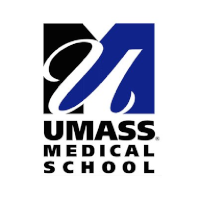
19 Jul Postdoctoral Fellow Position in Machine Learning and Decision Making
Postdoctoral Fellow Position in Machine Learning and Decision Making
University of Massachusetts Medical School, Worcester, Massachusetts
The University of Massachusetts Medical School (UMMS) Department of Neurosurgery is seeking a full-time computer science/machine learning postdoctoral fellow to study the neural correlates of decision making. The N3Lab (Neuromorphology and Network Neurodynamics Lab) employs multi-modal neuroimaging methodologies, including electrocorticography (ECoG, electroencephalography (EEG) and microelectrode recordings from human brain (MER), to identify neural patterns associated with metacognition, trust, and attentional level, when the user is involved in a decision-making task with other humans or artificial agents (AIs). Our analytic approaches include, but are not limited to, graph theoretical analysis of large-scale neural networks, machine-learning algorithms (including deep learning), and neural population modeling. The ultimate aim of the project is to implement closed-loop, real-time cognitive systems for enhancing group decision making, including brain-computer interfaces (BCIs) and autonomous AI algorithms.
The postdoctoral fellow will be part of a multi-site US-UK collaboration project funded by the Department of Defense. Other excellent opportunities exist for various scientific interaction and collaborations in the fields of neuroscience, machine-learning and biomedical signal processing, as well as for participation in the extensive programs of seminars, symposia, and other relevant meetings.
Responsibilities
- Design, implement, set-up and conduct the research protocol, including the development of the decision-making experiments with audio-visual stimulation
- Researching and developing robust algorithms for signal processing, statistical inference and extraction of information from the multi-modal neural signals
- Researching and developing artificial intelligence decision-making systems based on modern machine-learning techniques
- Developing optimal group decision strategies and group selection strategies
- Liaising with other partners on the project, including travelling to other project sites
- Preparation of publications and scientific presentations at national and international meetings
- Mentoring the junior staff
Qualifications and Skills
- PhD in computer science, physics, mathematics, artificial intelligence, biomedical engineering, computational neuroscience or related quantitative fields
- Exceptionally strong computational skills in biomedical signal processing, machine learning, statistical modelling.
- Solid experience in Python and/or MATLAB for algorithmic design and implementation
- Independent, self-motivated with a proven track record of productive research
- Excellent verbal and written communication skills
- Ability to work effectively both independently and in collaboration with multiple investigators
- Strong publication record and excellent academic credentials
Position Duration: Full-time, 1-year initial contract, renewable annually contingent upon performance to up to 2 years.
Salary: Commensurate with experience according to the University of Massachusetts Policies and Procedures.
Deadline: The position is available immediately, and the applications are considered on an ongoing basis until the position is filled.
How to Apply
Applications should be sent to Dr. Farid Hamzei-Sichani at Farid.Hamzeisichani at umassmemorial.org or Farid.Hamzei-Sichani at umassmed.edu and should include the candidate’s CV along with the list of publications, a statement of interests in the position, and the names and contact information of at least three professional referees.
Internal Number: UMass-01
About University of Massachusetts Medical School
The University of Massachusetts Medical School (UMMS) is located in Worcester, Massachusetts, one of five University of Massachusetts campuses.
Founded in 1962 to provide affordable, high-quality medical education to state residents and to increase the number of primary care physicians practicing in underserved areas of the state. – Consistently ranked by U.S.News & World Report as one of the leading medical schools in the nation for primary care education. – Federal and private research grants and contracts of approximately $250 million in fiscal year 2018. Enhancing health and science education, ensuring community health, building a diverse workforce and enriching lives through extensive community outreach. The three UMMS graduate schools are the School of Medicine, the Graduate School of Biomedical Sciences and the Graduate School of Nursing. The School of Medicine is committed to training in the full range of medical disciplines, with an emphasis on practice in the primary care specialties, in the public sector and in underserved areas of Massachusetts. Graduate School of Biomedical Sciences students receive a broad background in the basic medical sciences and are trained in their selected specialty area in preparation for research with direct relevance to human disease. The Graduate School of Nursing offers master’s, post-master’s and doctoral degrees, providing high quality education to prepare registered professional and advanced practice nurses within nurse practitioner and nurse educator specialties and for faculty, research and other nursing leadership positions. UMMS is a world-class research institution, consistently producing noteworthy advances in clinical and basic research. In 2006 the Nobel Prize in Physiology or Medicine was awarded to UMMS professor Craig C. Mello, PhD, and his colleague Andrew Fire, PhD, of Stanford University, for their discoveries related to RNA interference (RNAi), a cellular process that offers astounding potential for understanding and, ultimately treating, human disease. Our research programs are central to the Massachusetts Life Sciences Initiative, with major funding from the $1 billion Massachusetts Life Sciences Bill signed into law in 2008. Our researchers have made pivotal advances in HIV, cancer, diabetes, infectious disease, and in understanding the molecular basis of disease. Programs and centers include the RNA Therapeutics Institute, the Gene Therapy Center, Program in Gene Function and Expression, Systems Biology and Neurotherapeutics. We invite you to learn more about why UMass Medical School is a great place to work and study.
The information transmitted is intended only for the person or entity to which it is addressed and may contain confidential and/or privileged material. Any review, transmission, re-transmission, dissemination or other use of, or taking of any action in reliance upon this information by persons or entities other than the intended recipient is prohibited. If you received this in error, please contact the sender and delete the material from any computer.
Please click here to apply.


Sorry, the comment form is closed at this time.